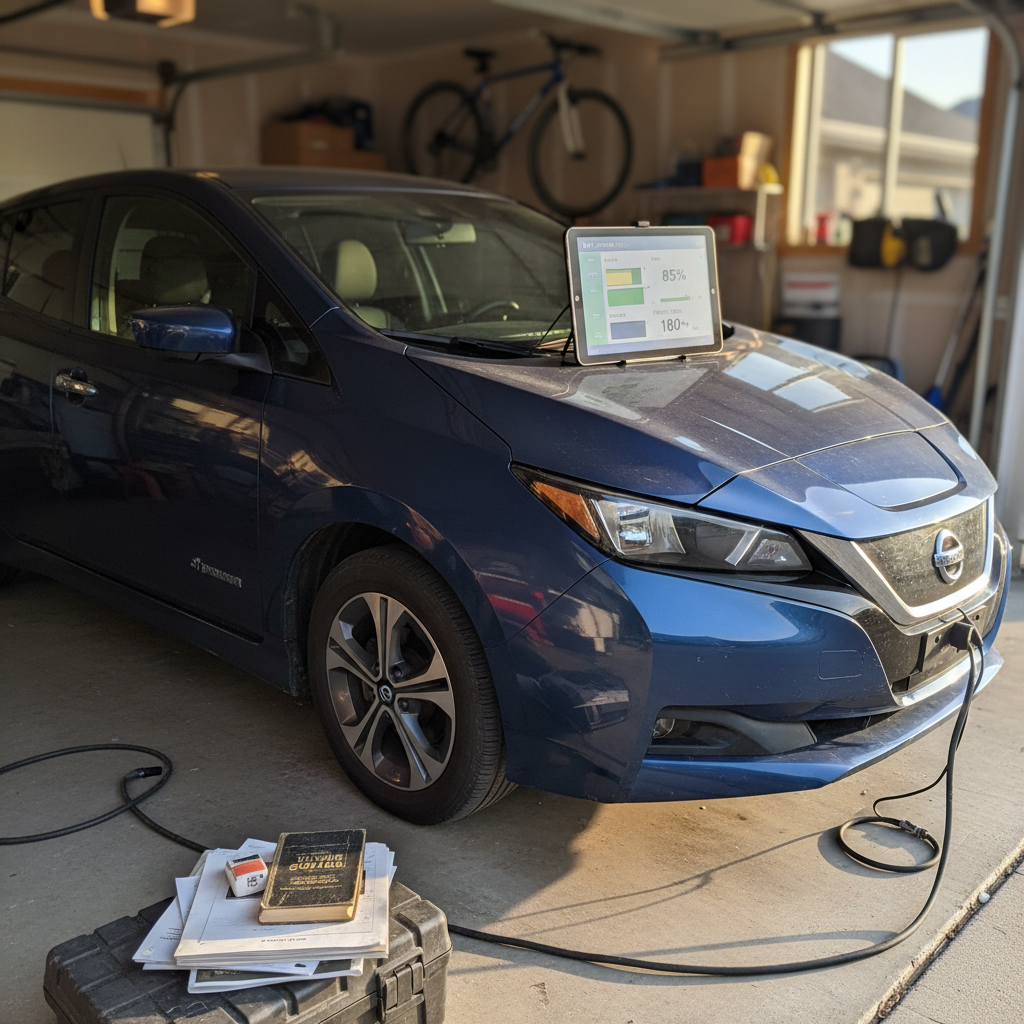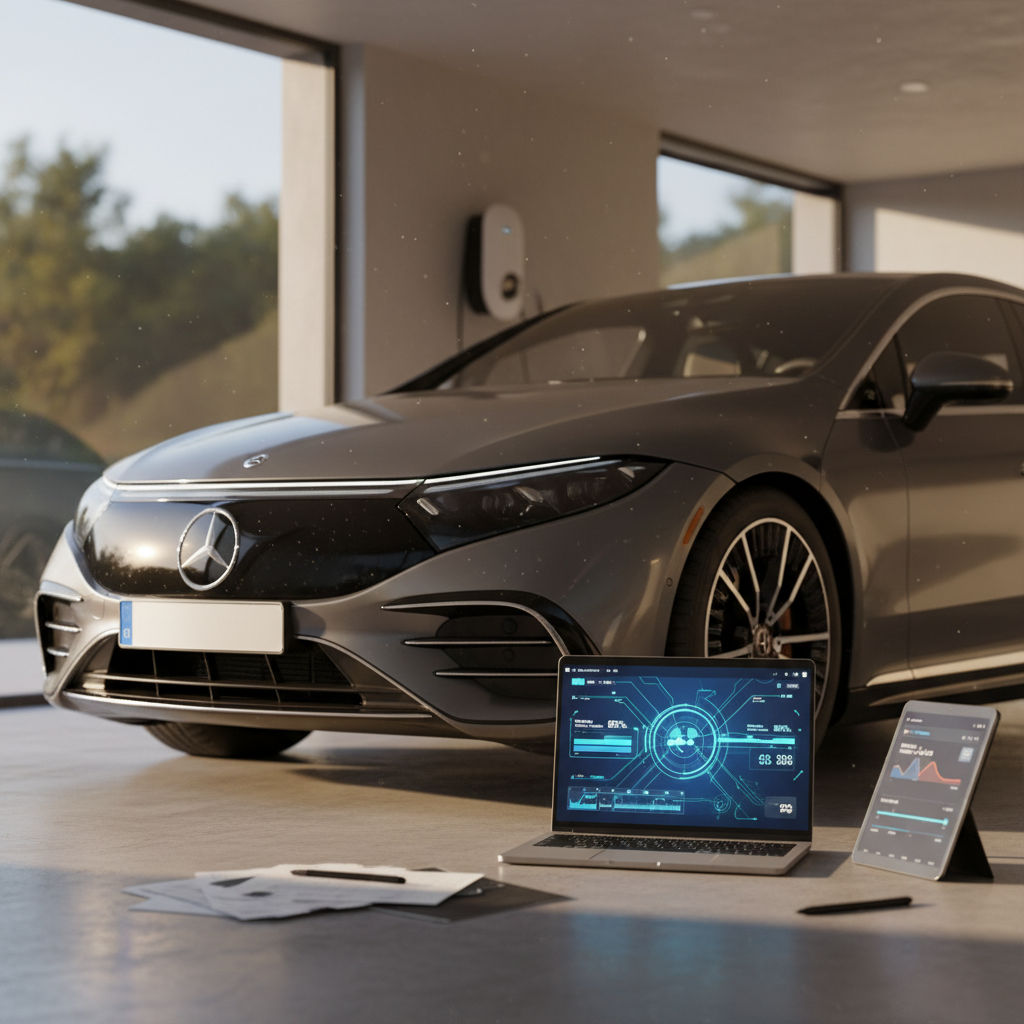Searches for “Tesla Miami” usually come from one of three places: you want to buy a used Tesla, you’re wondering what charging in South Florida is really like, or you’re trying to decide if a Tesla is still the smart EV choice in 2025. The Miami market is its own animal, high EV adoption, intense heat, unique insurance costs, and plenty of used inventory, so you need more than generic Tesla hype before you write a big check.
Miami is an EV bellwether
Why the Tesla Miami story is different in 2025
Nationally, Tesla’s used prices have been falling faster than the rest of the market, roughly three times the rate of other used cars over the last year. At the same time, federal EV tax credits for both new and used EVs expired on September 30, 2025, and Tesla has raised lease prices in response. Miami buyers are walking into a market where used Teslas are plentiful, cheaper than they were a year or two ago, but no longer supported by federal incentives.
Tesla & EV reality check for Miami shoppers
In other words, Miami is a classic late‑cycle Tesla market: the cars are no longer scarce status objects, and depreciation has finally caught up. That’s bad news if you bought at the peak, and very good news if you’re shopping carefully today.
Used Tesla prices in Miami right now
If you plug “Tesla Miami” into any used‑car marketplace right now, you’ll see the pattern immediately: Model 3 and Model Y dominate the listings, with the occasional Model S, Model X, or Cybertruck sprinkled in. Recent data from mainstream listing sites shows dozens of 2025 Model 3s within driving distance of Miami, with asking prices from roughly $29,000 to just under $50,000 depending on trim and mileage. Local dealer snapshots show similar numbers, mid‑$30,000s for low‑mile 2025 Model 3 Long Range cars, often with under 10,000 miles.

Typical 2025 Miami-area asking prices by Tesla model
These are ballpark listing ranges, not offers, use them as a starting point, not the final word.
Model 3 (2023–2025)
Rough asking range: $29,000–$45,000
- Standard/Rear‑wheel drive often in the low‑$30,000s
- Long Range and Performance trims push into the $40,000s
- Many examples with under 20,000 miles due to rapid turnover
Model Y (2023–2025)
Rough asking range: mid‑$30,000s–mid‑$40,000s
- Long Range AWD is the volume play in South Florida
- Performance trims and low‑mile examples sit at the upper end
- Family‑friendly crossover shape keeps demand resilient
Cybertruck & upscale models
Rough asking range: $70,000+
- Early used Cybertrucks still priced like toys for enthusiasts
- Model S/X prices vary wildly with age, mileage, and battery
- Liquidity is lower than Model 3/Y, so expect more negotiation
Why the drop is your friend
Because used Tesla prices fell sharply in 2024–2025, the market finally reflects reality instead of hype. If you buy now, you’re less likely to be the one subsidizing someone else’s early‑adopter premium, especially if you verify battery health and avoid overpaying for software features you won’t use.
Don’t get hypnotized by the monthly payment
Tesla charging and Superchargers in Miami
For most people searching “Tesla Miami,” charging is either the selling point or the anxiety trigger. The good news is simple: South Florida is one of the better‑served regions in the U.S. for both Supercharging and Level 2 charging, and that’s increasingly true whether you drive a Tesla or another EV.
Everyday charging options for Tesla and other EVs in the Miami area
Think about where your car sits for hours, that’s usually the best place to charge.
| Use case | Best option | Typical speed | Tesla owners | Non‑Tesla owners |
|---|---|---|---|---|
| Overnight at a house | Level 2 home charger (240V) | 25–40 mi/hour | Wall Connector or third‑party Level 2 | Same, with J1772 or NACS plug |
| Apartment/condo | Community Level 2, workplace, or DC fast | 20–40 mi/hour on Level 2; much faster on DC | Use public Level 2 or Superchargers | Mix of networks (EVgo, Electrify America, Tesla with adapter/Magic Dock) |
| Road trips on I‑95/Turnpike | Tesla Supercharger or high‑power DC fast | 150–250+ kW peak on many sites | Plug‑and‑charge on Supercharger network | Use CCS or NACS via adapter; some Superchargers with Magic Dock |
| Top‑ups while shopping | Level 2 at malls and grocery stores | 10–25 mi/hour | Destination chargers or Superchargers nearby | Level 2 J1772 or CCS at retail locations |
Home charging is still the foundation, but public options matter if you live in a condo or park on the street.
Use the Tesla app even if you don’t own a Tesla (yet)
Should you buy a Tesla or another EV in Miami?
Tesla advantages in Miami
- Dense Supercharger coverage along coastal corridors and major highways, which matters when you’re evacuating or road‑tripping.
- Simple charging experience – plug in, walk away, billing handled automatically.
- Strong efficiency – especially on Model 3/Y, which translates to lower kWh per mile in stop‑and‑go traffic.
- Solid range per dollar compared to many legacy OEMs, particularly on used cars where depreciation has already hit.
Reasons to consider non‑Tesla EVs
- Interior and ride preferences – some buyers prefer traditional dashboards, physical buttons, and quieter suspensions.
- Competitive pricing – used Hyundai, Kia, Ford, and GM EVs in Miami can undercut comparable Teslas, especially smaller crossovers.
- Rapid NACS adoption – most new EVs sold in 2025–2026 will ship with Tesla’s NACS port or an adapter, narrowing Tesla’s charging advantage.
- Dealer incentives – franchised dealers sometimes discount aggressively on slow‑moving EV inventory, something Tesla doesn’t do at stores.
Where Recharged fits in
Insurance, taxes, and real cost of ownership in Miami
South Florida is notorious for high insurance rates, and EVs don’t get a free pass. Insurers price based on repair cost and claim history, not just fuel savings. Late‑model Teslas in particular can cost more to insure than an equivalent gas sedan, especially for younger drivers or those with tickets. At the same time, Florida’s lack of state income tax and modest registration fees help offset some of the running costs.
Key cost-of-ownership factors for a Tesla in Miami
Don’t just compare gas vs. electricity, look at everything that hits your bank account.
Insurance premiums
What to do:
- Get quotes on the exact VINs you’re considering before you sign.
- Ask how Tesla’s repair networks and parts affect rates.
- Consider higher deductibles if cash flow allows.
Flood & storm risk
Miami reality: Street flooding and storm surge are real risks for any car, not just EVs. But batteries and electronics don’t like salt water.
- Avoid cars with mysteriously low prices and incomplete histories.
- Scrutinize Carfax/maintenance for post‑storm repairs.
Electricity vs. gasoline
Even with higher power rates, home charging usually beats $3–$4/gallon gas in total cost per mile, especially if you can charge off‑peak.
If your only option is expensive public DC fast charging, the economics are much closer, run the numbers before you commit.
Financing & incentives
As of late 2025, the big federal EV tax credits are gone. That makes purchase price, interest rate, and loan term more important than ever.
Recharged can help you compare financing offers and keep you from stretching to a 7‑ or 8‑year loan you’ll regret later.
Depreciation curve
Teslas took a sharp hit in 2024–2025. If you buy after that reset, you’re closer to the flatter part of the curve, good for long‑term ownership.
Avoid overpaying for FSD or software features that don’t add much resale value in Miami’s crowded commuter traffic.
Service & repairs
Tesla service centers are improving but still not as dense as traditional dealers. Factor in:
- Driving distance to your nearest service center
- Availability of mobile service at your home or office
- Third‑party shops that specialize in EVs
Battery health and Miami’s heat: what buyers should know
High heat is the silent force that shapes EV ownership in Miami. Teslas use liquid‑cooled battery packs and robust thermal management, but physics is relentless: hotter climates age batteries faster, especially if the car is fast‑charged often or parked outside in direct sun all day.
Why you can’t just trust the range number on the screen
How to sanity-check Tesla battery health in Miami
1. Look at the odometer and the climate story
A low‑mile car that’s lived its whole life in South Florida may have more thermal stress than a higher‑mile car from a cooler region. Ask where the car spent most of its time, not just how far it’s driven.
2. Ask about DC fast charging habits
Frequent Supercharging is convenient but harder on the pack than slow overnight charging. A car that was road‑tripped constantly and fast‑charged daily is likely to show more degradation.
3. Compare displayed range at 90–100%
On a test drive, many sellers will show you the car at a high state of charge. Compare the displayed rated range at 90–100% against the original spec for that trim. A healthy used pack will usually still be within a reasonable band, not tens of percent below.
4. Get real diagnostics, not just guesswork
Generic OBD dongles and quick‑look apps aren’t enough. A proper battery health report reads pack‑level data, temperature histories, and charge cycles. This is exactly what Recharged’s <strong>Score Report</strong> is designed to provide.
What the Recharged Score tells you about the battery
How Recharged helps Miami buyers shop smarter
Traditional dealers in South Florida are still learning how to price, inspect, and support EVs. And Tesla’s own used inventory tends to be priced aggressively, with limited negotiation room and minimal transparency on pack health. Recharged was built to address both pain points, especially for buyers in markets like Miami where the EV transition is already in full swing.
What Recharged brings to a Tesla purchase in Miami
Think of it as an EV‑native alternative to the old dealership model.
Verified battery health
Every vehicle on Recharged comes with a Recharged Score Report that includes:
- Pack health and estimated remaining capacity
- Fast‑charge vs. home‑charge usage patterns
- Alerts for unusual degradation or potential abuse
Transparent, fair pricing
Used Tesla prices move fast. Recharged benchmarks every vehicle against current fair‑market data, so you’re not paying last quarter’s hype price in today’s softer market.
Financing built for EVs
You can apply for financing online and see terms without spending a Saturday in a F&I office. And because Recharged works with EV‑savvy lenders, the underwriting actually reflects the lower fuel and maintenance costs of EVs.
Nationwide delivery to South Florida
Found the right Tesla or other EV in another state? Recharged can arrange delivery to Miami and across Florida, so you’re not limited to what’s sitting on local lots this week.
Trade‑in or sell your current car
Use your gas car, or even another EV, as a trade‑in or get an instant offer. You can also consign your EV and tap into Recharged’s audience if you’re on the other side of the transaction.
EV specialists on call
Instead of a generic salesperson, you get EV‑specialist support from first browse to delivery. That includes answering nerdy questions about charging curves, battery chemistry, and Florida‑specific ownership issues.
Quick checklist for buying a used Tesla in Miami
Don’t skip these steps before you buy
1. Decide if Tesla actually fits your life
Walk through your weekly driving, parking, and charging reality. If you can’t install home Level 2 and rely entirely on fast charging, consider how that affects both cost and battery life.
2. Compare Tesla to at least one non-Tesla EV
Look at a used Tesla and at least one alternative, Hyundai, Kia, Ford, GM, so you understand what you’re getting in range, features, and charging access for the same money.
3. Pull a full vehicle and battery health history
Standard vehicle history reports are necessary but not sufficient. Make sure you get a <strong>battery health report</strong> as well, Recharged includes this by default in the Recharged Score.
4. Get insurance quotes on the actual VIN
Miami insurance can swing a payment by hundreds of dollars a month. Quote the specific VINs you’re considering before you sign, not after.
5. Run the total cost of ownership
Factor in charging (home vs. public), insurance, financing, and realistic depreciation. Owning an EV is about more than saving on gas, it’s about the full multi‑year picture.
6. Consider buying digitally and delivering to Miami
If local inventory looks picked over, expand your search. With Recharged’s digital process and nationwide delivery, you can shop the broader used‑EV market and still end up with the car in your driveway in Miami.
Tesla Miami: frequently asked questions
Frequently asked questions about Teslas in Miami
Bottom line: is Tesla in Miami still worth it?
In 2025, the “Tesla Miami” story isn’t about chasing the latest hype, it’s about navigating a mature EV market in a challenging climate. The upside is clear: more inventory, better prices than a few years ago, and an increasingly accessible charging ecosystem. The risks are also clear: heat‑driven battery wear, high insurance, and the temptation to overpay for software and specs that don’t matter in traffic on US‑1.
If you approach the market with data instead of FOMO, verifying battery health, stress‑testing your charging plan, and running a real cost‑of‑ownership comparison, a Tesla can still make a lot of sense in Miami. And if you’d rather not play used‑car detective on your own, starting your search with Recharged gives you transparent battery diagnostics, fair‑market pricing, expert EV guidance, and the option to have the right car delivered straight to your driveway in South Florida.



